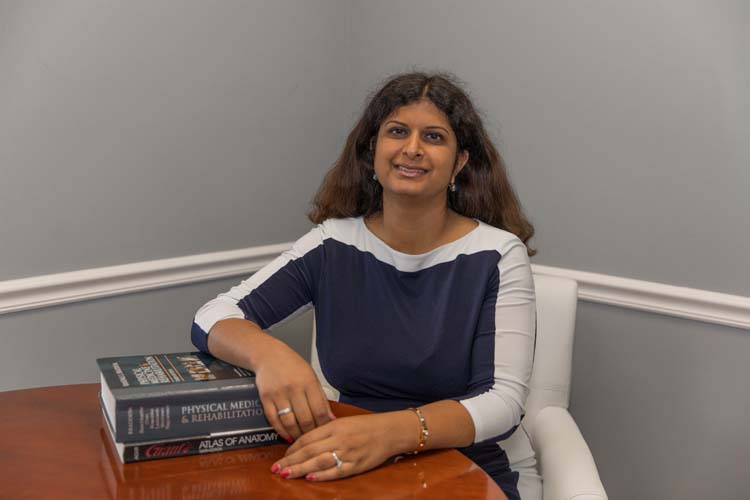
Dr. Alita Sikora practices integrative medicine, which Duke Medicine defines as “an approach to care that puts the patient at the center and addresses the full range of physical, emotional, mental, social, spiritual and environmental influences that affect a person’s health.”
WebMD adds that “with integrative medicine, you get science-backed therapies that your doctor has chosen to treat your condition.”
In Dr. Sikora’s case, those therapies include medical marijuana to treat chronic pain. She says medical marijuana isn’t for everyone, but in certain cases it can be a godsend.
“I have one lady with ALS [Lou Gehrig’s disease]. It took forever for the state to get it but this is one person who I felt really, really needed it,” Sikora recalls. Then she happily adds that what was once “a horrible quality of life” for that particular patient has gotten much, much better now with medical marijuana.
More than 100 million Americans, says the Institute of Medicine at the National Academy of Sciences, suffer from chronic pain.
That’s nearly one-third of the country’s total population. And, according to the World Health Organization, today’s epidemic of opioid overdoses and deaths has largely been fueled by ever-increasing prescriptions to treat chronic pain.
The American Academy of Pain Management says dependence on pain medications “exacts a tremendous cost on this country,” and if you want to put a price tag on that, the Institute of Medicine claims it is “a minimum of $560-$635 billion annually.”
Dr. Sikora, who has spent nearly a decade in practice here, started looking for a better way of treating chronic pain than – as she puts it – just “giving pills and medications. That’s where my interest began in more integrative therapies.”
Besides medical marijuana, she uses acupuncture, platelet-rich-plasma injections and bio-identical hormone therapies.
“In 2011,” Sikora explains, “I took an acupuncture class for physicians at the University of Miami and I started doing that as part of my practice, so I would have a non-medication or non-injection alternative to help patients with really minimal risks and I found it helped a lot of people.”
Sikora, who earned her medical degree at the University of Connecticut and served her residency at New York Presbyterian Hospital, knows the medical marijuana aspect is likely the most controversial part of her practice, but she is quick to point out she isn’t operating a marijuana clinic and quicker still to share some other insider information.
For starters, she says, to get an order for medical marijuana, “You have to meet one of the qualifying conditions, which include cancer, epilepsy, Parkinson’s disease, Crones disease, glaucoma or HIV-AIDS” or be suffering from a diagnosed form of chronic non-malignant pain.
“I have many older beachside residents coming to me for this. They’ve gone through pain medications, epidural injections and surgeries, and they’re saying ‘What more can I do? I don’t want to be on narcotics,’ so a lot of them come to me. Because I’ve been here for almost 10 years, a lot of people know me [and] their physicians know me.”
Sikora emphasizes that she keeps no marijuana (oil, pills or otherwise) on the premises and even if she did, the drugs would not get anyone high.
“Most of these older people, they’re getting low-THC marijuana so they are not getting high from this.”
The active ingredients in low-THC marijuana, according to the National Cancer Institute, can still “relieve pain, lower inflammation and decrease anxiety,” without causing the ‘high’ that THC does.
If you want to try medical marijuana, be prepared to wait a bit.
According to Sikora, “It takes usually about four weeks” for patients to get it.
“First they need to send an application to the state of Florida to get a medical marijuana card. Until recently, you had to have a Florida driver’s license or ID [but] I just found out yesterday that ‘snowbirds’ can actually get one, too. If you’re in the state of Florida for 31 days and you have a temporary Florida address, you can get [a card].”
And in Vero, be prepared to wait some more, even after you get the card. With no local dispensaries, you’ll probably have to arrange some kind of home delivery – though not through the USPS, since medical marijuana is still a prohibited class-one drug under federal law – despite being legal in 29 states and the District of Columbia. Sikora can explain how to set up delivery.
Of course, anyone considering any “outside-the-box” form of treatment – integrative or otherwise – should first consult their primary care physician and talk about their options.
Dr. Alita Sikora can be reached at Sikora Integrative Medicine at 1040 37th Place, Suite 102 in Vero Beach. The phone number is 772-228-6882.



